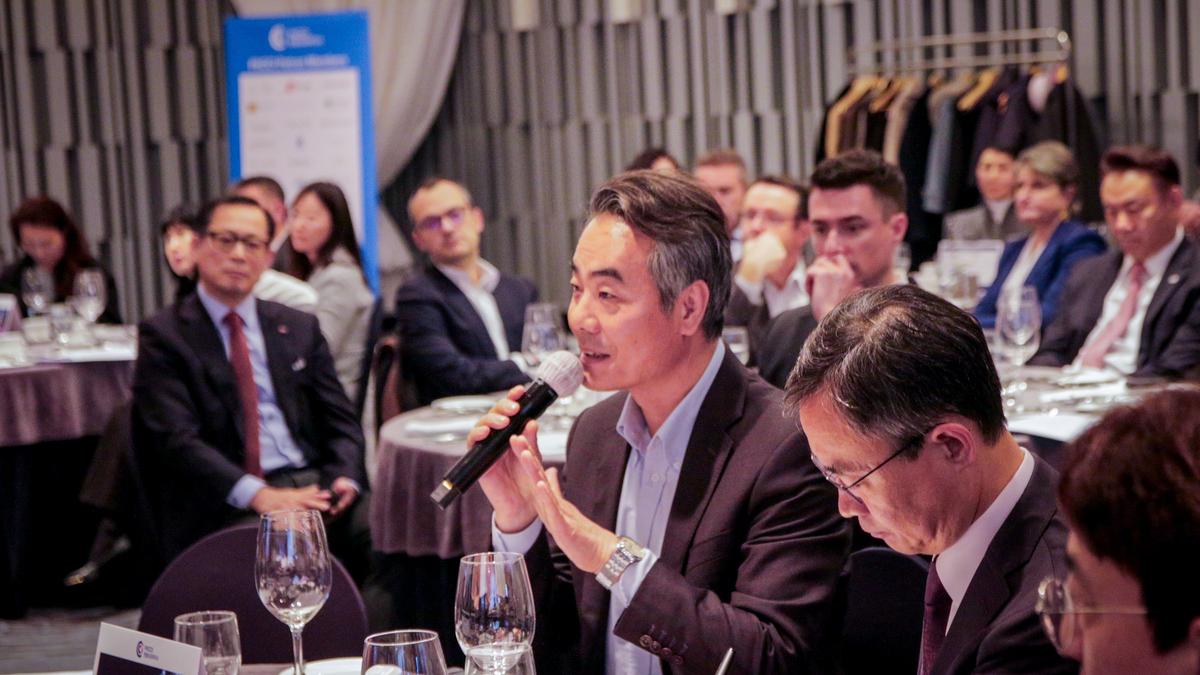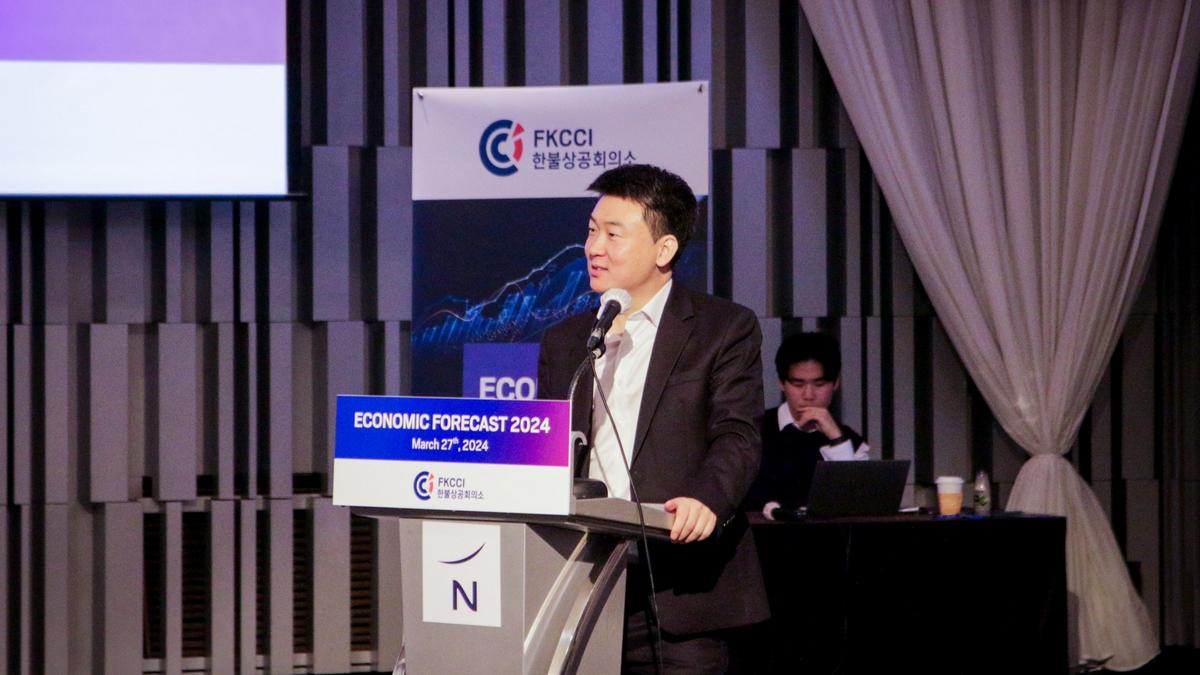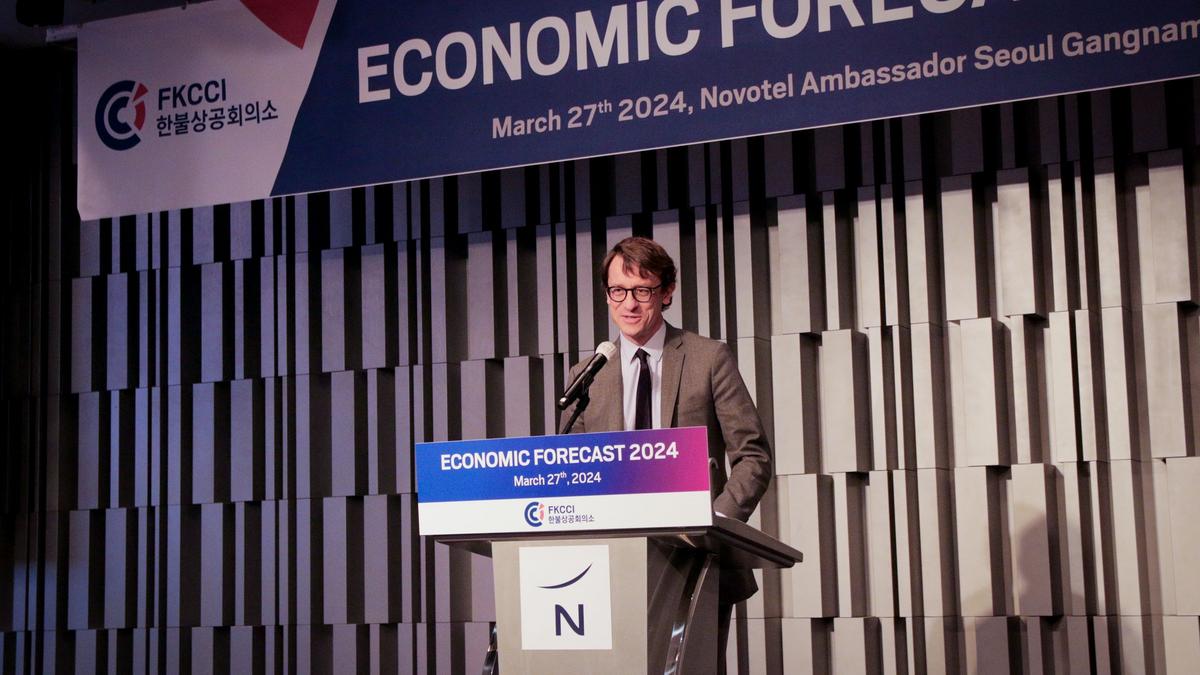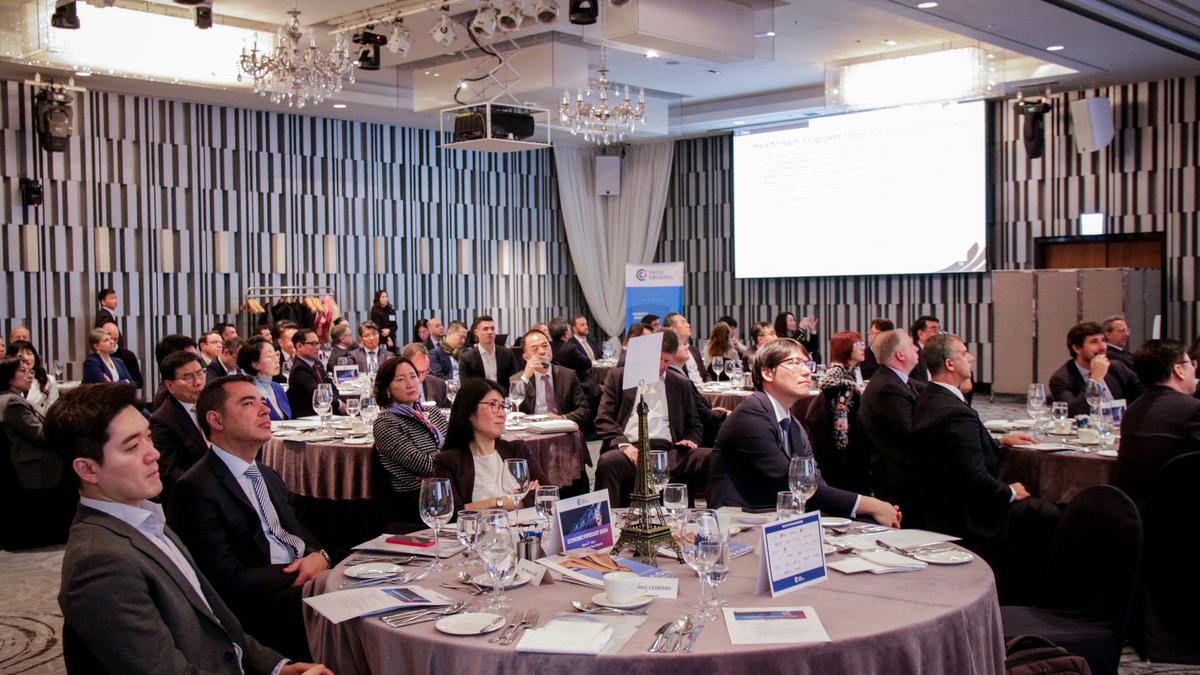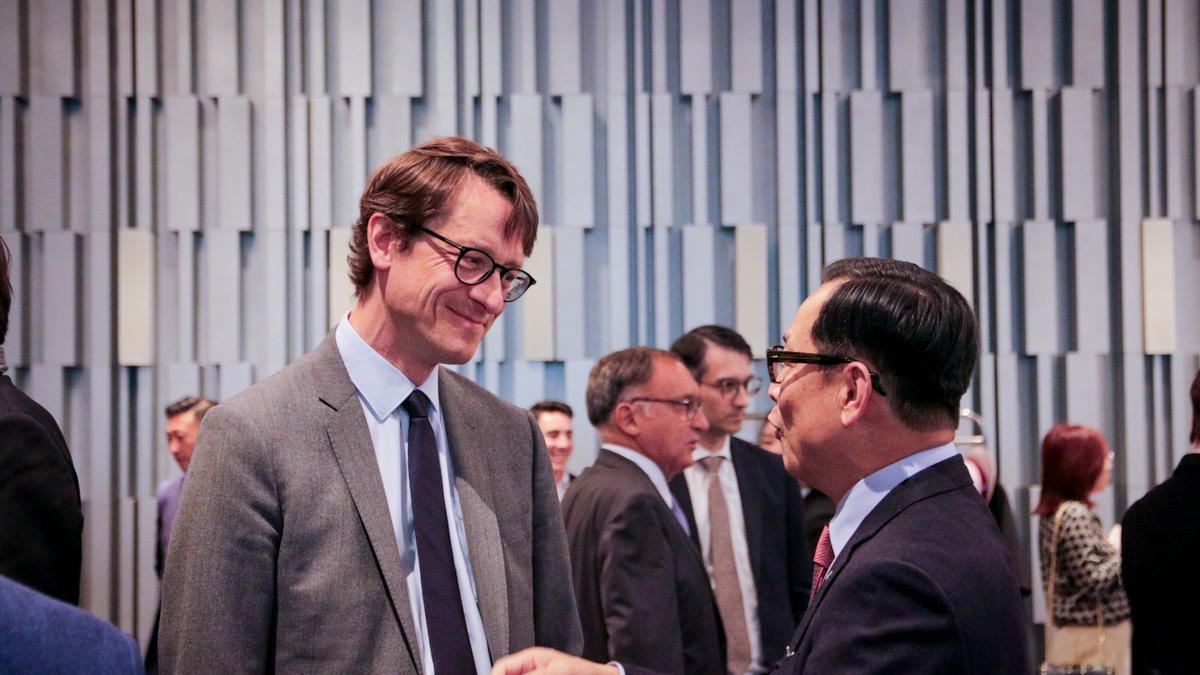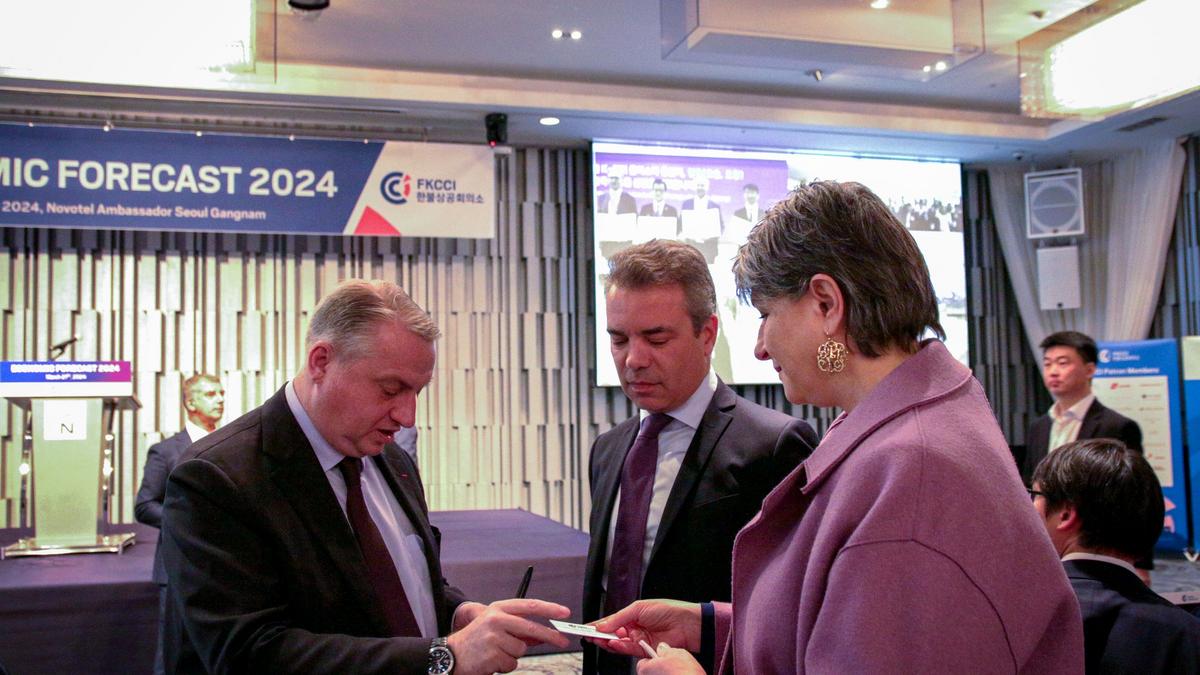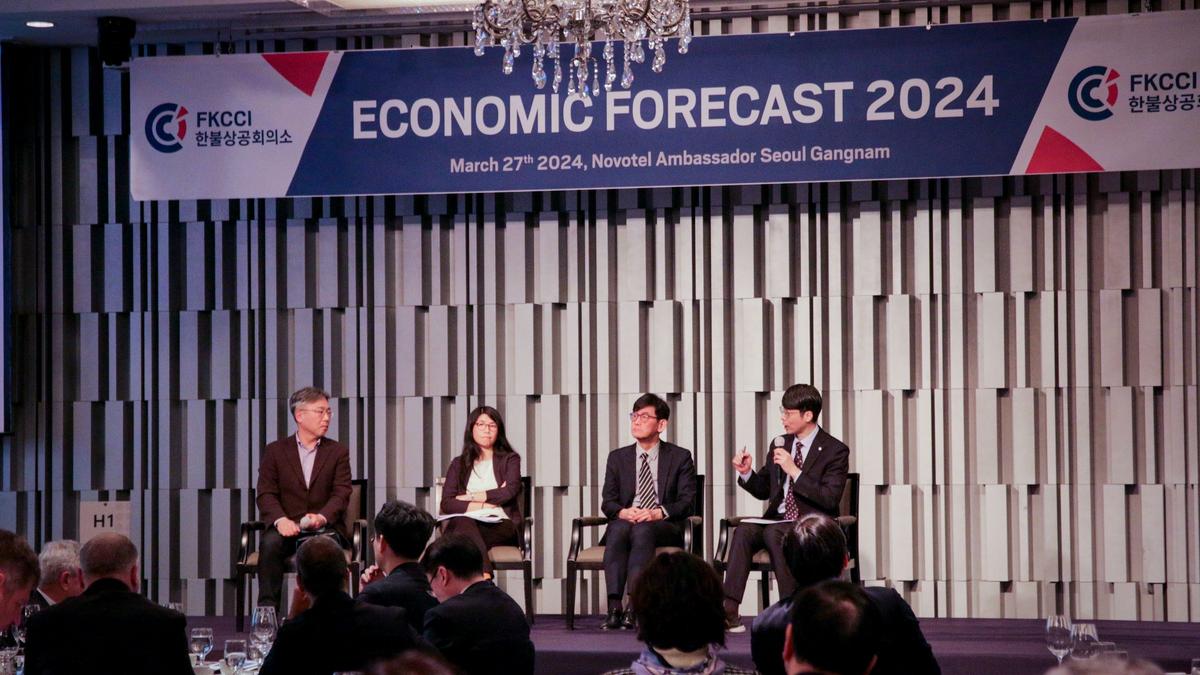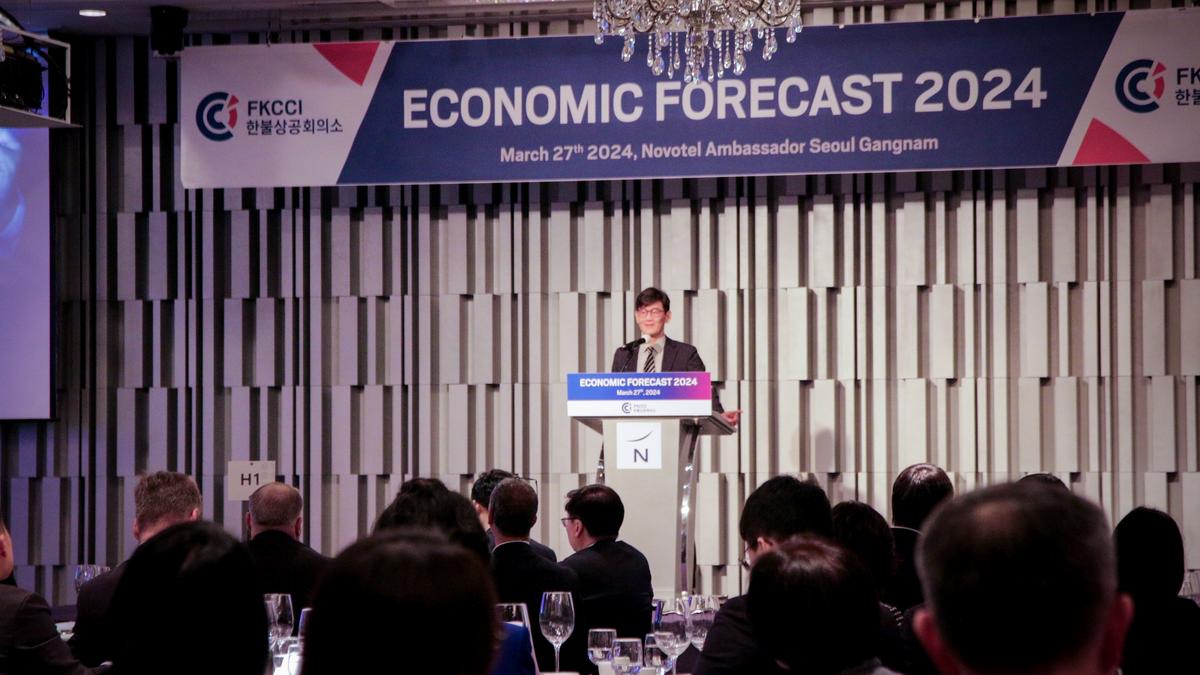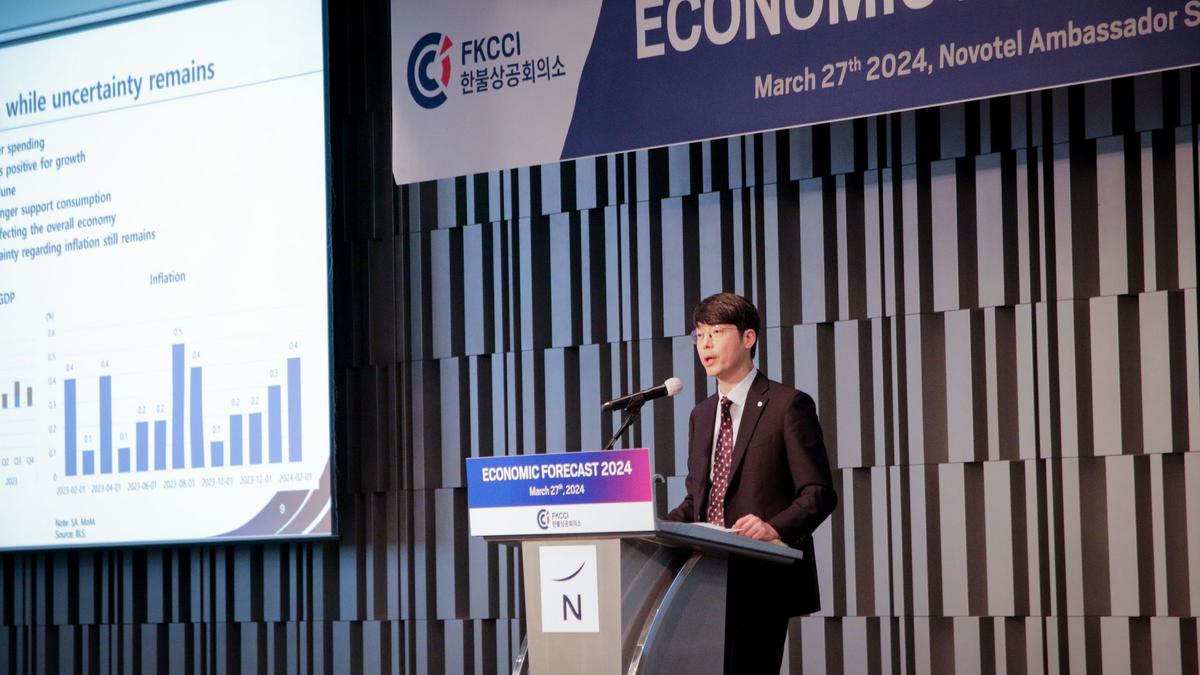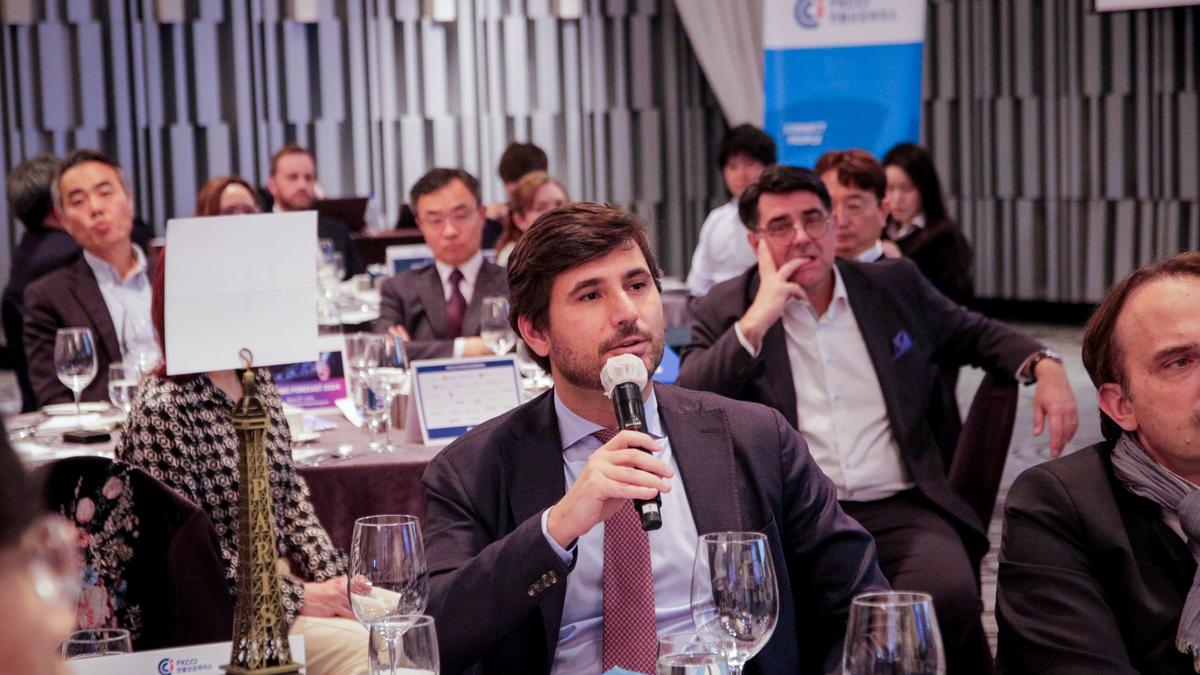Bilans d’évènement
Korea and Global Economic Trajectory: Insights from FKCCI Economic Forecast 2024
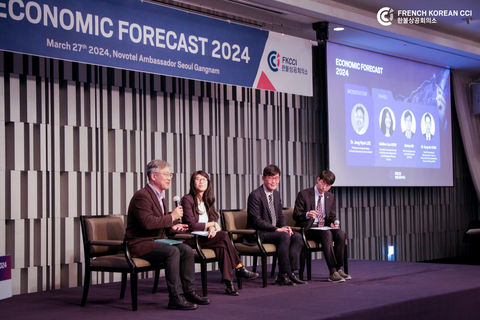
On March 27th, the FKCCI convened over 70 executives in Korea to receive analysis of both the Korea and global economic landscape for 2024!
In light of global geopolitical tensions and upcoming elections, the FKCCI hosted the Economic Forecast Seminar 2024 on March 27th at Novotel Ambassador Seoul Gangnam. With over 70 attendees from Korea's local and international business circles, the event aimed to provide insights into the current economic instability.
The seminar commenced with introductory remarks from FKCCI Chairman Mr. David-Pierre JALICON and H.E. Mr. Philippe BERTOUX, the Ambassador of France to Korea. Following these, three economy specialists in Korean, Asian, and international markets delivered presentations forecasting economic trends for 2024 and beyond. The event concluded with a dynamic Q&A session followed by a business luncheon, providing attendees with the opportunity to share their business perspectives on the topics discussed.
Mr. David-Pierre Jalicon, Chairman of FKCCI, inaugurated the conference by highlighting the growing collaboration between Korean and foreign Chambers of Commerce in Korea. He applauded the Korean government's increasing support for foreign investment and now reinvestment, citing recent discussions with President Yoon and upcoming meetings with the MOTIE, signaling a promising collaboration between Korea and countries that share the same values of democracy, innovation, and multilateralism.
Chairman Jalicon also shared that “2023 was marked by a relatively slow growth for Korea with 1,4 %, mainly resulting from a global slowdown and weak exports”. He is confident for 2024 as Korea is targeting 2.2% of growth and the Korean government is sending signals that it will support local consumption and export. He added that “The relationship between Korea and France continues to thrive. Last year, we have reached a record of 15.9 billion euros trade balance, which is catching up with the one between France and Japan. We see a new wave of foreign investments in Korea in mobility, energy, advanced materials, and semiconductors”.
This economic assessment was shared by H.E. Mr. Philippe Bertoux, Ambassador of France to Korea, who specifically highlighted that despite geopolitical challenges, last year marked a positive turn for French-Korean relations with numerous high-level political meetings. M. Ambassador Bertoux particularly mentioned the upcoming visit of a delegation of prominent French businesspeople, led by Medef international on May 22~24th, that will provide great opportunities to reinforce the Korean-French relationship and open new avenues for cooperation in key innovative sectors as outlined by the French and Korean Presidents during their meetings in June and November 2023. He concluded by raising awareness on celebrations in 2026 of the 140th anniversary of the bilateral relations between France and RoK and the importance of showcasing new economic and commercial successes on that occasion.
Experts from prestigious institutions, Ms. Adeline-Lise KHOV, Economic Counsellor & Head of the Economic Department at the Embassy of France to Korea, Dr. Sang-Ha YOON, Head of International Macroeconomics Team at Korea Institute for International Economic Policy (KIEP), and Suktae OH, Chief Korea Economist at Société Générale shared their insights on the global markets and the domestic Korean economy's outlook.
In 2023, the Korean economy experienced weaker growth than forecasted one year ago, largely attributed to a global slowdown and a notable 7.4% decline in exports. Despite these challenges, Korea outperformed many advanced economies. By 2024, the Korean economy is projected to grow by 2.2%, with a 2.8% increase in the government's budget to $493 billion and a projected inflation rate of 2.6%. Despite the difficulties of 2023, a rebound in exports is anticipated in 2024, supported by a $267 billion trade financing plan to achieve the ambitious target of $700 billion in exports in 2024.
The Asian economic trends for 2024 showcase a mix of progress and challenges. For Japan, despite the country witnessing positive growths in exports and tourism, it struggles with weak domestic consumption, high inflation, and a depreciating yen. Emerging powerhouses like India and China are experiencing robust growth rates, with China projected to grow at 5% and India at 6% in 2024. Thus, although Asian countries experienced a slowdown this region continues to grow steadily compared to the West.
Finally in a more global perspective, global growth will face constraints in 2024, due to debt reduction across various sectors, while high interest rates remain burdensome. Economic growth is diverging, on one side, the USA is experiencing steady growth while on the other side, the rest of the world faces challenging times. Indeed, the USA leads the global economy, with a strong growth rate compared to other advanced economies (2.4% in 2023), a robust job market that fuels consumer spending, and positive fiscal spending driving growth. As for Europe, its' growth was slow with a 0.5% growth rate in 2023 but is expected to recover with 1.1% in the second half of 2024, boosted by a rebound in tourism and steadily low inflation. Nevertheless, the upcoming re-election at the Korean assembly, alongside similar re-election processes touching 49% of the population worldwide, holds the potential to significantly influence the global political landscape and, consequently, the dynamics of both local and international economic trends in the world.
